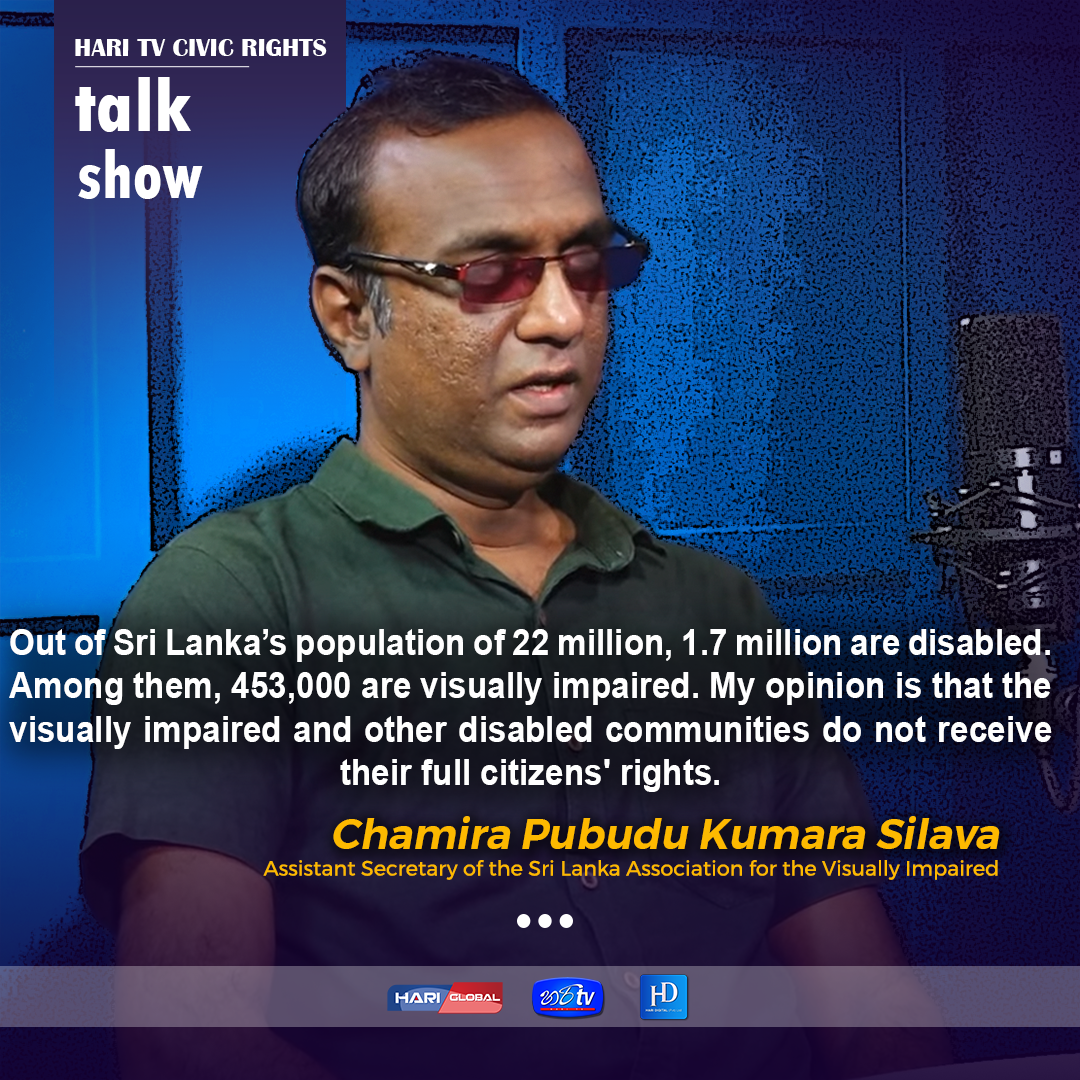The arrival of election season in Sri Lanka has brought the term “citizens’ rights” into sharp focus across the society. In any democratic society, raising a voice about one’s rights is a fundamental democratic right. This discussion is specifically presented in the “Hari Tv Civic Rights” program, with Chamira Pubudu Kumara Silva, Assistant Secretary of the Sri Lanka Association for the Visually Impaired, as a resource person, based on an interview with Lahiru Mudalige.
Chamira, are you satisfied with the rights of the visually impaired community in Sri Lanka?
My short answer is no. Out of Sri Lanka’s population of 22 million, 1.7 million are disabled. Among them, 453,000 are visually impaired. My opinion is that the visually impaired and other disabled communities do not receive their full citizens’ rights.
Why do you say that?
Let me give a simple example. When I was 12, I was a visually impaired child going to the Rathmalana School for the Blind. Every school child receives textbooks for the next year in December. However, the school I attended did not receive them at that time. Even today, these materials are not properly distributed to these children. Our printing press in Maharagama is still inactive. During examination periods, announcements are made for those appearing for exams from the Education Minister to the Commissioner. Can you recall anyone speaking up for us? The situation is the same in the transport sector. We don’t have facilities to identify bus stops. Although plans mention disabled access in building construction plans, these facilities are often missing when the building is completed. So how can we be satisfied?
Now, as we approach the election period, I would like to know how the visually impaired community will manage to vote.
Until now, we have relied on others for assistance in voting. A polling officer or a friend helps me by casting my vote according to my party preference. However, I don’t know if my vote is used according to my wishes. There is no method to verify this. Even if I take my mother with me, the situation remains the same. My preferred political party or ideology may not be the same as my mother’s. Although there has been talk about using a bell system for voting, it is not yet implemented.
Do you have any suggestions on this?
Yes. I see the most successful method as developing a system integrated with modern technology. Since a significant portion of the disabled community is familiar with technology, this could be beneficial. However, this will take time. Therefore, as an immediate measure, if we can take a trusted person with us to the polling station in the next election and cast our vote in front of a polling officer, it may work to some extent. Although we can hear and understand existing political trends, how can those who are unable to hear or speak gain that understanding? How many news programs provide information in sign language on TV? What are the facilities for those with mobility issues to reach polling stations? Elected representatives and relevant authorities need to find solutions for these issues.
Do you have any hopes for representation of your community in Parliament?
It would be good if we could achieve that. However, I can’t do it alone. We also need the agreement of other communities. Discussions are ongoing. Our community has a good level of political awareness. We have made mistakes in the past, and there are those among us who face hardships and disadvantages. Nevertheless, we are striving to gain the opportunity to represent Parliament through a recognized political party. Furthermore, if proper mechanisms for vote casting are not established for our people, we are discussing the possibility that the visually impaired community might abstain from voting in future elections.
August 29, 2024

